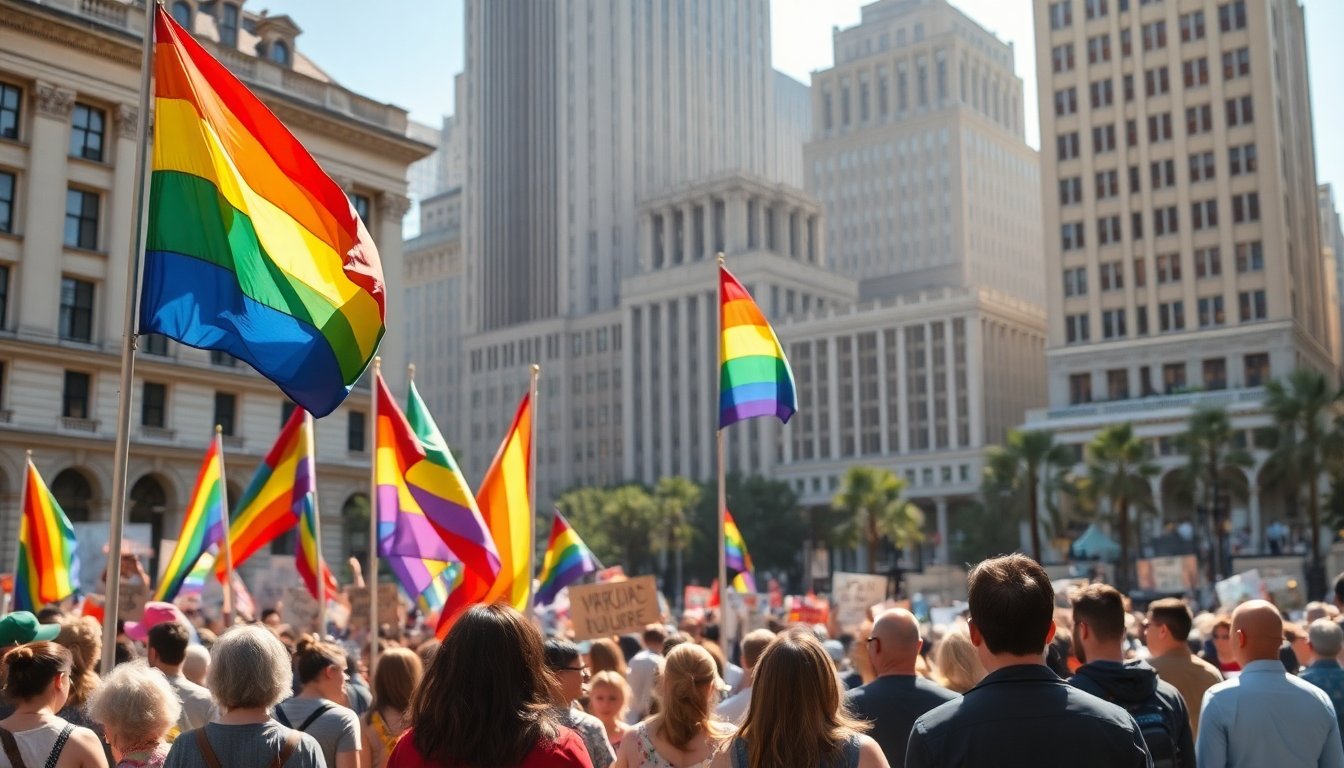Table of Contents
“`html
In a significant legal development, the U.S. Supreme Court has chosen not to review a case challenging the ruling that legalized same-sex marriage nationwide. This decision follows an appeal from Kim Davis, a former county clerk in Kentucky, known for her refusal to issue marriage licenses to same-sex couples on religious grounds. The court’s rejection underscores its commitment to uphold established rights despite ongoing challenges.
The case centers on Davis’ actions after the Supreme Court’s ruling in Obergefell v. Hodges, which confirmed that same-sex couples possess a constitutional right to marry. Her refusal to issue marriage licenses initiated a series of legal proceedings, illustrating the complex intersection of religious freedom and civil rights.
Background of the case
Following the Supreme Court’s decision, Davis halted the issuance of marriage licenses to all couples, citing her Christian beliefs. This decision led to a lawsuit by David Moore and David Ermold, who were denied a marriage license. The ensuing legal battle escalated, culminating in a federal court ordering Davis to comply with the law. She initially defied this order, resulting in a brief incarceration.
Legal implications of the court’s decision
As the case unfolded, Kentucky modified its marriage license procedures to accommodate clerks like Davis, allowing licenses to be issued without the clerk’s name. Ultimately, a jury ruled in favor of Moore and Ermold, awarding them $100,000 in damages for the initial refusal. The court determined that Davis, in her official capacity, could not use her personal beliefs to deny marriage licenses.
Davis’ legal team appealed, contending that her First Amendment rights to religious freedom were violated. While her case garnered support in certain legal circles, the Supreme Court’s refusal to hear the appeal signals a strong reaffirmation of same-sex marriage rights.
Concerns from LGBTQ advocates
The Supreme Court’s dismissal of Davis’ appeal was welcomed by LGBTQ rights advocates who were apprehensive about a potential rollback of established rights, particularly after the court’s controversial ruling that overturned Roe v. Wade. Some activists voiced concerns after Justice Clarence Thomas suggested the possibility of revisiting Obergefell in his opinion on the abortion case. However, the court’s conservative majority showed no inclination to reassess the same-sex marriage ruling.
Future of same-sex marriage rights
The implications of the court’s recent decision extend beyond this specific case. It reflects a broader trend of protecting LGBTQ rights while navigating the intricate balance of religious freedom. The Supreme Court has previously favored expanding individual religious rights, yet in this instance, it appears to have drawn a line regarding public officials imposing personal beliefs on their professional responsibilities.
As the legal landscape surrounding same-sex marriage and religious freedoms continues to evolve, observers are closely monitoring how future challenges to established rights will develop, especially in the context of the current political climate and ongoing advocacy efforts.
The Supreme Court’s dismissal of Kim Davis’ appeal not only upholds the landmark ruling that legalized same-sex marriage but also reinforces the principle that personal beliefs cannot override constitutional rights in the public domain. This decision serves as an affirmation of progress in LGBTQ rights, setting a precedent for how similar cases may be addressed in the future.
“`


